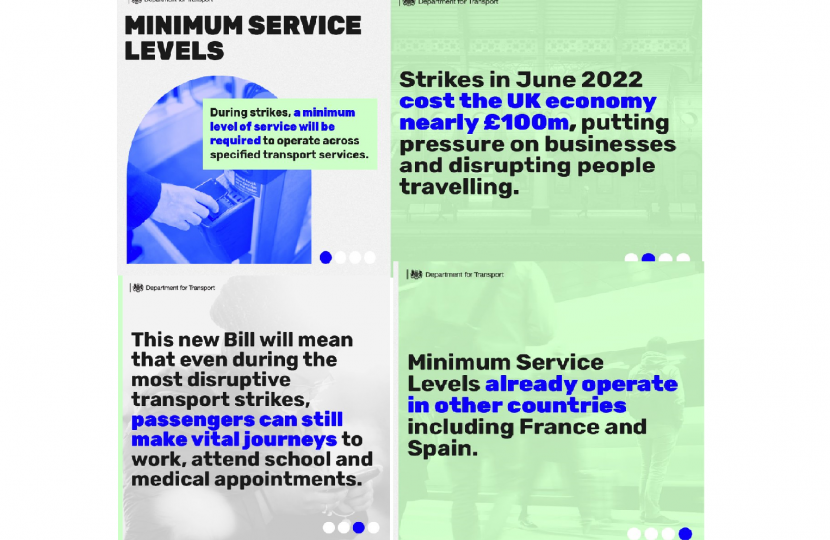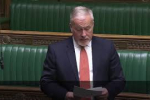
The government has taken the first steps to ensure transport strikes no longer grind the country to a halt. The Transport Strikes (Minimum Service Levels) Bill, introduced into the Commons last week, means even during the most disruptive of strikes, a certain level of services will still run. This will allow passengers to go to work, attend school and make vital medical appointments and allow businesses to continue to grow the economy.
As well as the huge impact on people’s day-to-day lives, economists have assessed that the first wave of rail strikes alone, in June 2022, cost the UK economy nearly £100 million, putting extra pressures on business and stopping people across the country from accessing their workplace during a cost-of-living crisis.
The legislation will mean:
- a minimum service level must be in place during transport strikes – if this is not delivered, the unions will lose legal protections from damages
- employers will specify the workforce required to meet an adequate service level during strikes and unions must take reasonable steps to ensure an appropriate number of specified workers still work on strike days
- specified workers who still take strike action will lose their protection from automatic unfair dismissal
The Bill will set out the legal framework to allow minimum service levels to not only be set across the entire transport sector, but also implemented and enforced. The specific details of how minimum service levels will apply to transport services will be set out in secondary legislation in due course after a public consultation.
The intention of the legislation is that relevant employers and unions agree a minimum service level to continue running during all strikes over a 3-month period. If such a level cannot be agreed, an independent arbitrator – the Central Arbitration Committee – will determine the minimum number of services.
The legislation is expected to come into force on transport services across the country in 2023 and follows similar rules already in place in countries across Europe, including France and Spain.
Richard Fulle MP said:
Hardworking people and businesses should not be held to ransom by Labour-backed strike action which has repeatedly crippled our transport network this year. A reliable transport system is vital for people to access key services like healthcare and education.
That is why we have introduced legislation that will keep transport services running in the event of strike action – putting in place minimum service levels to keep Britain moving during union enforced disruption. This delivers on our 2019 manifesto pledge – cracking down on the union baron’s ability to paralyse our economy and ensuring passengers can continue to get to work, school or hospital.

